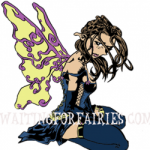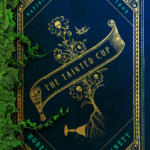White Horse is the debut novel of Alex Adams and will be published from Atria/Emily Bestler Books on April 17, 2012. It is the first in a trilogy.
The Blurb
Thirty-year-old Zoe leads an ordinary life until the end of the world arrives. She is cleaning cages and floors at Pope Pharmaceuticals when the President of the United States announces that human beings are no longer a viable species. When Zoe realizes that everyone she loves is disappearing, she starts running. Scared and alone in a shockingly changed world, she embarks on a remarkable journey of survival and redemption. Along the way, Zoe comes to see that humans are not defined by their genetic code, but rather by their actions and choices. White Horse offers hope for a broken world, where love can lead to the most unexpected places. [GoodReads]
The Review
This book was a little more “literary” and a lot less fun then most stuff I’ve read lately. Sure, the end of the world isn’t exactly an uplifting subject, and the story does say a lot about human nature, hope, love, and despair. But Laura Anne Gilman’s Dragon Virus touched all those points, too, and she did it better, to boot. You may recall me saying that Gilman’s story was pretty bleak. Well, Dragon Virus was a beacon of hope compared to White Horse.
That’s not to say there’s no value in this. If you are less fond of the fantastic then you are of realism, Adams’ book is not much more far-fetched then a near-future imagining. If you need allegory in your novels, or haven’t been able to quite leave your college literature classes behind, then you may enjoy this one better than I did. Some of the blurbs accompanying it have compared it to Cormac McCarthy – and since I’ve never read him, I have no reason to think they’re lying. Which explains why McCarthy has never crossed my radar before.
The book is well-written, and though I found Zoe a dry character, she’s not an unsympathetic one. The way the narrative jumps back and forth between “then” and “now” until the two time-lines coincide was obviously done so for impact. Unfortunately, it also kept me from becoming really engaged with Zoe’s character. Further, some of the events in the book seem almost more for shock value then to move the plot forward. They do do that, but they seem sort of shoe-horned in, not having evolved naturally.
I didn’t hate it, but I did find it disturbing and depressing. If you like your literature fantastic and with more prose than plot, you may enjoy this one better than I did.




